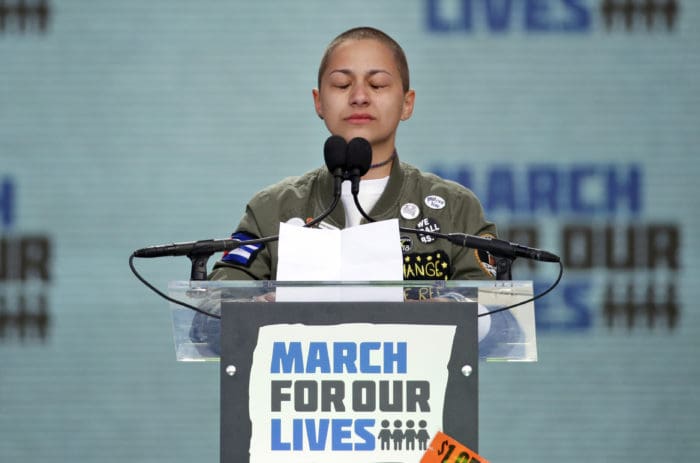The quote of the day is presented by Guns.com.
It may seem baffling that a father’s response to his daughter being killed in a mass shooting would be to oppose gun control and run for office on that idea. After all, the most prominent mass shooting survivors-turned-activists in America are the students from Parkland, Florida, who helped create the March for Our Lives movement. David Hogg and Emma González have become national celebrities; the organization has arranged major protests and issued an ambitious “peace plan” last month.
But the randomness of most mass shootings means there’s no real pattern to survivors’ politics, even after the events that bind them together. (The astonishing number of survivors and family members contributes to a natural diversity in the population: 1,209 people have been injured but not killed in mass shootings this year in the United States, and the number of unhurt survivors and family members is much larger.) Another Parkland survivor, Kyle Kashuv, became a prominent conservative gun rights activist. (Harvard rescinded Kashuv’s acceptance this summer after evidence surfaced that he had used racist language online.) J.T. Lewis, the 19-year-old brother of a Sandy Hook victim, is running for state Senate as a Republican in Connecticut; Lewis, a Trump supporter, says he supports gun control legislation but emphasizes funding for mental health programs and school security.
Four of last month’s eight deadliest shootings took place in Texas, but Texans have complicated attitudes toward gun laws. Only 40 percent want to ban semi-automatic weapons, a number significantly lower than the national figure. Pomeroy sees gun violence as a character issue, related to the “sanctity of life,” the failure to teach values in public schools, and society’s “humanistic self-centered approach.” He would like to see faster responses by law enforcement to threats and manifestos posted on social media.But he doesn’t think restricting access to weapons is the answer. “The problem we have at the moment with the violence sweeping America is not so much to do with the firearm as much as the person holding the firearm,” he said.
– Ruth Graham in When Losing a Loved One to Gun Violence Doesn’t Change Your Gun Rights Beliefs
